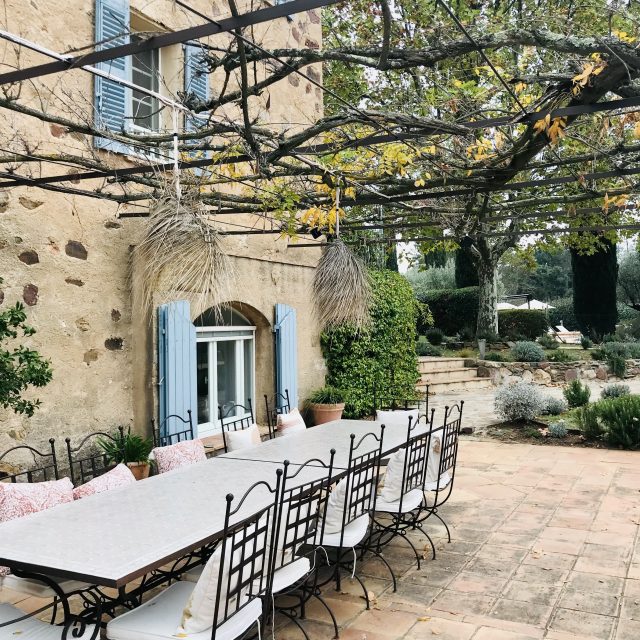This website uses cookies so that we can provide you with the best user experience possible. Cookie information is stored in your browser and performs functions such as recognising you when you return to our website and helping our team to understand which sections of the website you find most interesting and useful.
Mirabeau: ‘I wasn’t this City whiz kid who’d made millions. We had to sell our house to start this’
Mirabeau founders Stephen and Jeany Cronk tell db how they hustled their way to the top of the rosé ladder.

“It used to be that wines started off in the on-trade and then segued into retail. Now it’s very much the other way around,” says Stephen Cronk, who co-founded Mirabeau in 2010 with his wife Jeany, settling in Notre Dame des Anges, a subregion within the Côtes de Provence.
“Angela Muir MW managed to get me a half hour slot with Waitrose in Christmas 2010 and it all went from there,” Stephen tells the drinks business. “They said ‘there are 600 other producers in Provence. Why should we choose you?’ I remember telling them ‘Because we’ll make it fly off the shelves’, which is not something that wine producers tend to say.”
The rest, as they say, is history. Albeit fairly modern history as the brand is just 11 years young, and going great guns.
Waitrose agreed to trial Mirabeau in 60 of its 300 stores but, says Stephen, “they insisted on putting us on the bottom shelf, which is the exit spot, as they were taking a gamble…. Now, Waitrose is our biggest global customer.”
Mirabeau X launched with the Co-op in February this year and the brand’s estate wine, La Réserve, is available from Harrods.
According to the Cronks they found breaking into the world of Provence rosé producers challenging, but not opaque.
“It’s competitive, of course, in the region, but we’re also really supportive of each other,” says Jeany. Doors were far from closed to the newcomers and the pair are effusive about the fact that had it not been for the advice of their neighbours there were times when they may have floundered.
“Part of being smart is admitting when you’re not smart,” says Jeany. “A lot of it has been learning on the job.”
The fact that the pair weren’t heirs to a giant family fortune, or custodians of groaning offshore bank accounts, also helped to smooth their path with members of the local wine community.
“I wasn’t this City whiz kid who’d made millions. We had to sell our house to start this,” Stephen tells db. He’d had a small wine import business in the early ‘90s, which he wound down due to economic recession, and subsequently worked in telecommunications.
“We had a lot more skin in the game than other people,” concurs Jeany, who says that rosé trends have changed significantly since Mirabeau first broke onto the market.
“We’re definitely finding that rosé is becoming less seasonal, with people drinking it all year round. Sales charts for rosé used to look like the Matterhorn, with sales dropping off sharply after summer, now it’s more like rolling hills,” she says.
The Cronks are firm believers in rosé’s gastronomic potential and according to their winemaker and technical director Guillaume Cordonis, who joined the team in February 2022, Mirabeau’s La Réserve expression can not only be sipped at any time of year, but during any time of the day. “It pairs beautifully with scrambled egg and truffle,” he says.
“We want people to see rosé as a wine and not just a colour,” Jeany tells us.
Sadly, Mirabeau wasn’t able to make its La Réserve wine last year due to smoke taint suffered after a devastating fire blazed its way through the perimeters of Mirabeau’s estate.
Stephen Cronk is tearful when he says: “When the firefighters called me they said ‘You’re not going to like what you see, but we managed to save most of the buildings and animals, and I just blubbed.”
As a result of the lack of La Réserve made, the brand has had to severely restrict its distribution. “This year, we have only 10,000 bottles available.”
An indication of the Cronk’s community spirit and passion for sustainable winemaking is that despite this unfortunate turn of events, 50% of profits from Mirabeau’s La Réserve wine (a blend of 60% Grenache, 30% Cinsault and 10% Rolle) will still go towards the Regenerative Viticulture Foundation, which Stephen co-founded and launched earlier this year at 67 Pall Mall.
Mirabeau is also gearing up to relaunch its Pure rosé wine in a brand new bottle from spring 2023, available from Waitrose. The culmination of more than two years of careful planning, Jeany is thrilled with the result. “Our spiritual home is by the sea so I wanted to convey that with integrated glass waves built into the bottle. It’s a nod to when the sun goes down over the sea.”
When light hits the eyecatching bottle, the effect is one of dappled sunlight twinkling on the water. It has the power to transport you to balmier days, even when drinking its contents on a grey London day in the dead of winter. What alchemy is this?
“We’re hoping that people will want to keep the bottle and give it a second life as a carafe or a flower vase. We wanted to make something people would keep and use again, not just throw away,” explains Jeany of her decision to switch up the bottle design during a time of unprecedented glass scarcity.
“If Provence rosé is going to become more expensive, then we as a region need to experiment with where we can take it next in terms of complexity, style and design,” adds Stephen.
Related news
UK Christmas lights could buy 14 million mulled wines

